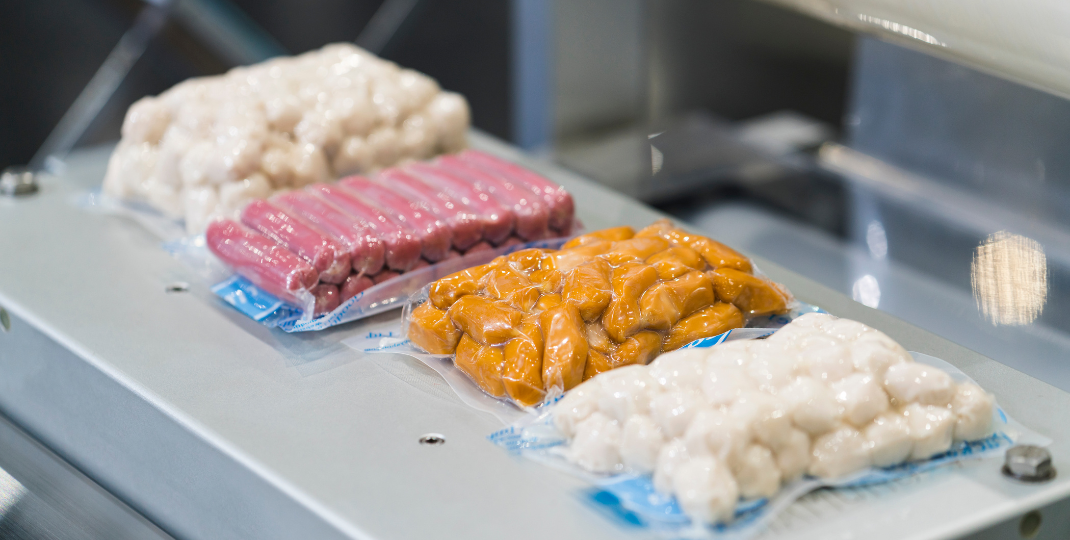FDA approved lab-grown chicken, also known as cultured meat or clean meat, represents a groundbreaking development in the field of food technology. By utilizing innovative laboratory techniques, scientists are able to produce real chicken meat without the need for traditional animal farming methods. This revolutionary concept has the potential to address numerous challenges associated with conventional meat production, including animal welfare concerns, environmental sustainability, and food safety issues. With the FDA's stamp of approval, lab-grown chicken is poised to transform the way we think about and consume meat, offering a promising solution for a more ethical and sustainable future.

What is the cost per pound of lab-grown chicken compared to traditionally raised chicken?
The cost per pound of lab-grown chicken is currently significantly higher compared to traditionally raised chicken. This is primarily due to the high production costs involved in creating lab-grown meat, which includes expensive equipment, research, and development processes. However, as technology advances and economies of scale are achieved, it is expected that the cost of lab-grown chicken will reduce and eventually become more competitive with traditionally raised chicken.

How does the production cost of lab-grown chicken compare to traditional chicken farming?
Lab-grown chicken, also known as cultured meat, currently has a higher production cost compared to traditional chicken farming. This is primarily due to the expensive and complex process involved in growing meat in a lab setting, which requires cell culture, growth media, and bioreactors. However, with advancements in technology and scaling up of production, it is expected that the cost of lab-grown chicken will decrease, potentially becoming more competitive with traditional chicken farming in the future.
Are there any additional regulatory costs associated with producing and selling lab-grown chicken?
Yes, there are additional regulatory costs associated with producing and selling lab-grown chicken. These costs include obtaining necessary approvals and permits from regulatory bodies, complying with safety and health regulations, conducting rigorous testing and inspections, and meeting labeling and advertising requirements. Additionally, there may be ongoing monitoring and reporting obligations to ensure compliance with food safety standards and consumer expectations.
Will consumers be willing to pay a premium for lab-grown chicken, or will it need to be competitively priced with traditional chicken?
The willingness of consumers to pay a premium for lab-grown chicken versus traditional chicken will largely depend on several factors. These include the perceived benefits of lab-grown chicken such as its potential environmental sustainability, animal welfare considerations, and health aspects. If consumers perceive these advantages to be significant, they may be willing to pay a premium. However, if lab-grown chicken is not competitively priced with traditional chicken, it may face challenges in gaining widespread consumer acceptance, especially among cost-conscious individuals who prioritize affordability over other factors.
How will the market demand for lab-grown chicken affect fda approved lab grown chicken the profitability of traditional chicken farmers?

The market demand for lab-grown chicken has the potential to significantly impact the profitability of traditional chicken farmers. As more consumers become aware of and opt for lab-grown alternatives due to concerns about animal welfare, environmental sustainability, and health benefits, the demand for traditional chicken may decline. This could result in a decrease in sales and pricing for traditional chicken products, potentially reducing the profitability of traditional chicken farmers who rely on this market segment. Additionally, if lab-grown chicken becomes more cost-effective and accessible, it could further erode the market share and profitability of traditional chicken farmers. Therefore, traditional chicken farmers may need to adapt their strategies or explore alternative revenue streams to remain profitable in an evolving market.

What impact will lab-grown chicken have on existing supply chains and distribution networks?
The introduction of lab-grown chicken is expected to have a significant impact on existing supply chains and distribution networks. Traditional methods of raising and processing chickens for meat will be disrupted, potentially leading to a decrease in demand for conventionally raised chicken and a shift towards lab-grown alternatives. As a result, supply chains and distribution networks will need to adapt to accommodate the production and distribution of lab-grown chicken, which may involve changes in sourcing, processing, transportation, and storage practices. Additionally, there may be a need for new regulations and certifications specific to lab-grown meat, further impacting supply chains and distribution networks.
Will lab-grown chicken have any negative effects on job opportunities in the traditional poultry industry?
The emergence of lab-grown chicken may potentially have negative effects on job opportunities in the traditional poultry industry. As lab-grown chicken production becomes more efficient and cost-effective, it could lead to a decrease in demand for traditionally farmed chicken and subsequently result in job losses within the traditional poultry industry. However, there is also the possibility that the growth of the lab-grown chicken sector could create new job opportunities in areas such as research, development, and manufacturing, offsetting some of the potential negative impacts on employment in the traditional poultry industry.

What are the potential long-term economic implications of a shift towards lab-grown chicken production?

The potential long-term economic implications of a shift towards lab-grown chicken production are significant. Firstly, it could disrupt the traditional poultry industry by reducing demand for conventionally produced chicken, leading to job losses and reduced profitability for farmers and producers. However, it could also create new economic opportunities in the form of research and development, manufacturing, and distribution of lab-grown chicken products. Additionally, it could have positive environmental effects by reducing the need for land, water, and feed required for conventional chicken farming. Overall, while there may be initial challenges and adjustments, the long-term economic impact of lab-grown chicken production has the potential to be transformative and sustainable.
FDA Approves Lab-Grown Chicken as Safe and Sustainable Alternative to Traditional Meat
In conclusion, the lab-grown chicken is a significant milestone in the advancement of food technology. With concerns about traditional meat production methods and their impact on the environment, animal welfare, and public health, lab-grown chicken offers a promising alternative that addresses these issues. The rigorous testing and regulatory oversight by the FDA ensure that lab-grown chicken meets the same safety standards as conventionally produced meat. As this innovative solution gains more traction, it has the potential to revolutionize the global food industry, offering sustainable and cruelty-free options without compromising on taste or nutrition. The FDA's approval paves the way for a future where lab-grown chicken can be readily available to consumers, providing a viable and ethical choice for those seeking a more sustainable and responsible food source.
